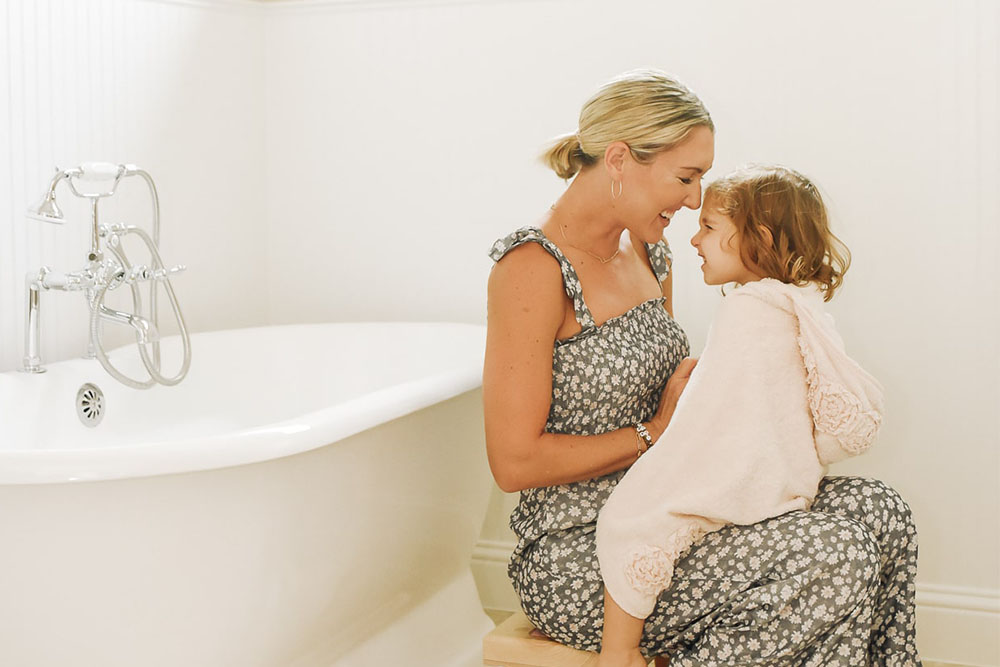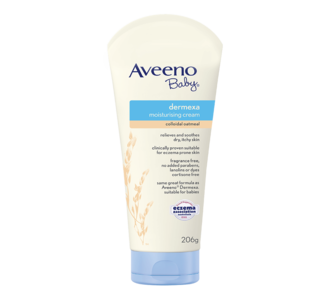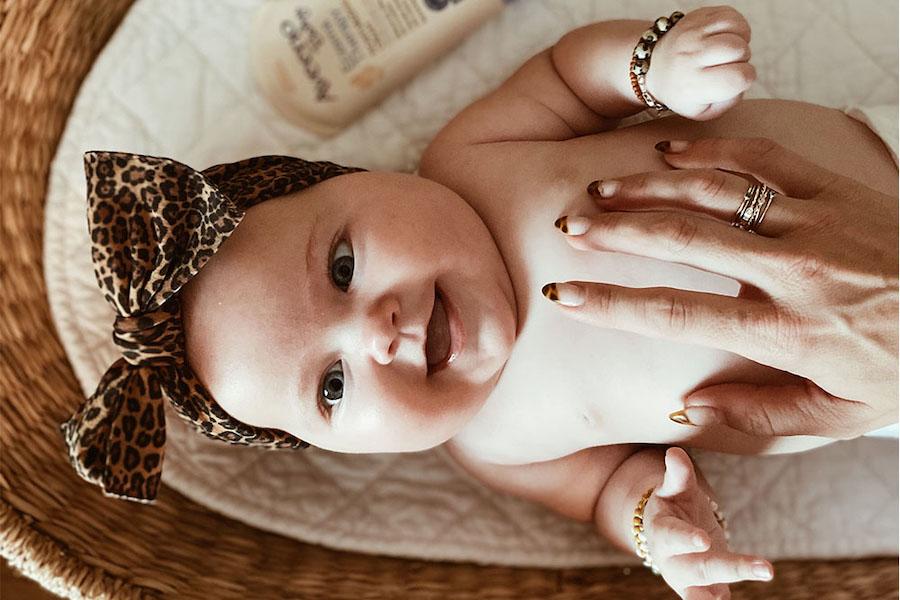
If your baby suffers from the dry, itchy skin condition eczema, you may be nervous about the risk of triggering a flare-up when washing or bathing. With just a few thoughtful tips added to your toolbelt, you’ll be able to confidently cleanse baby’s skin. Your intuition is right that routine hygiene can risk baby’s already tender skin, but cleansing their skin in a way that’s safe, healthful, and further supports your special bond is possible. Read on to discover just how to bathe a baby with eczema, including information about oatmeal baths.
Cleanup During the Day
From spit-up to first foods, the tiny humans we adore have a knack for getting their faces sticky and dirty. Unfortunately, the first presentation of eczema for most babies also occurs on the face, making daytime spot cleans of the forehead, cheeks and chin a bit more daunting. But worry not! Here’s how to clean your baby’s face with eczema: just gently wipe away smears as they appear with either a damp, lukewarm cloth that’s been washed in a non-irritating detergent. But worry not! Here’s how to clean your baby’s face with eczema: just gently wipe away smears as they appear with either a damp, lukewarm cloth that’s been washed in a non-irritating detergent.
When baby is completely done with their activity, provide a soft, full face clean with a fresh, damp cloth and then gently pat dry. If baby came into contact with new products during their exploration, briefly inspect their skin for any sign of increased irritation. As needed – apply a fragrance-free cream, that is clinically proven suitable for eczema prone skin.

Bathing Your Little One
Because eczema indicates a weakened skin barrier, bathing baby can be helpful to wash away potential irritants. Remember though, baths should only last 5-10 minutes so that baby’s skin stays supple. Practice touch supervision by first gathering your supplies so they’re all within arm’s reach, and then follow the simple steps below for how to bathe your baby without flaring up their eczema.
Step 1: Draw Bath
Fill the basin or tub with two inches of lukewarm water, avoiding the addition of any bubble bath products. Undress baby and place her immediately in the tub to keep her warm.
Step 2: Cleanse
No scrub-a-dub-dub here! Instead, you’ll want to use a soft, non-irritating cloth to gently massage baby’s skin. For stinky or dirty spots, use a mild, fragrance-free cleanser such as the AVEENO® Baby Cleansing Therapy Moisturizing Wash. When done, give baby a moment or two to simply splash and play.
Step 3: Pat Dry
It’s essential that baby’s skin be well dried after their bath but avoid any harsh rubbing. Instead, gently pat dry with a warm towel.
Step 4: Immediately Moisturize
While baby’s skin is still slightly damp – within three minutes after bathing - lather on a thick moisturizer or ointment to help bolster the skin’s barrier and lock in moisture. Your child’s doctor may have recommended topical prescription medicines that should be used at this time, but if not, creams, ointments, or balms formulated with colloidal oatmeal are suitable for baby’s eczema.

After Bath Time
After bathing and moisturizing, dress baby in soft, fresh clothes or pajamas, opting for soft fabrics like 100% cotton or bamboo when possible. If baby is experiencing severe eczema that interferes with regular daytime activities or sleeping, you may want to speak with your healthcare provider about wet wrap therapy. With wet wrapping, you’ll first dress baby in a warm, damp onesie and then follow with a loose, dry outer layer to keep them warm. Baby should stay this way for at least 30 minutes or even through the night.
Remember, you’re not alone if you’re worried over how to wash your baby’s eczema-prone skin! Because as many as 25% of children are affected by this condition, it’s safe to say that many parents have been in your same position. But now you can feel confident in your knowledge of how to safely cleanse your baby’s skin, and instead focus your energy on enjoying the precious opportunities for connection that come from one-on-one time with your baby.
